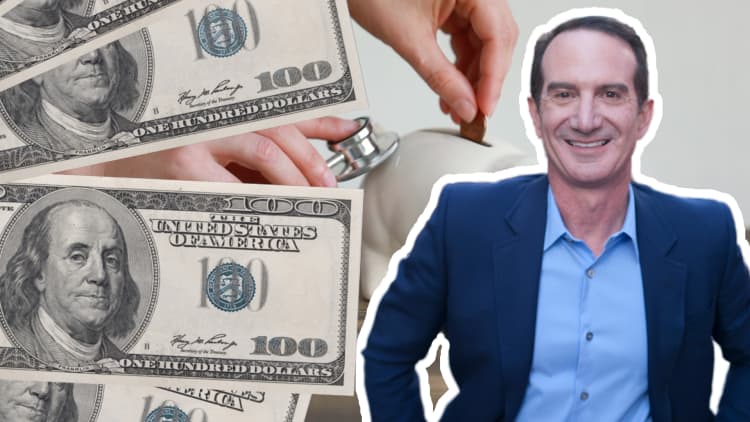As the partial government shutdown, now the longest in history, drags on, approximately 800,000 federal workers are going without pay. In some cases, government employees and contractors have had to drain their savings, rely on credit cards, or crowdsource funds to make ends meet.
Thousands of people have also filed for unemployment benefits to be able to pay rent or put food on the table. "I need to eat," Will Kohler, a tax examiner for the IRS, told CNBC.
The shutdown has highlighted how few Americans have the kind of savings experts say they need to handle a crisis.
For the country as a whole, the numbers are bleak: Only 29 percent of Americans have enough emergency savings to last more than six months, and just 18 percent have sufficient savings to cover three to five months, a 2018 Bankrate survey found.
That means that less than half of the population is truly prepared for an emergency.
And emergencies tend to happen: About a third, or 34 percent, of American households experienced a major unexpected expense over the past year, according to Bankrate's financial security index survey from January 2018.
Part of the problem seems to be that so many people in the U.S. are struggling to get by. Nearly 80 percent of American workers say they're living paycheck to paycheck, according to a 2017 report by employment website CareerBuilder. Women are particularly vulnerable: 81 percent of them report living paycheck to paycheck, compared with 75 percent of men.
That can make it difficult, or even impossible, to put money away.
But for those with the means to save, bulking up your emergency fund should be a top priority. Financial expert and bestselling author Dave Ramsey advises working toward putting $1,000 in savings before tackling any other financial goals, such as paying down debt. That's because something is always bound to go wrong, he says, no matter how careful you are.
"Car blows up. Transmission goes out. You bury a loved one. Grown kids move home again. Life happens, so be ready," Ramsey writes in "The Total Money Makeover." "This is not a surprise."
Building a solid emergency fund first is crucial, Ramsey explains, because it prevents bumps in the road from completely ruining the journey.

How much you should have saved for emergencies
Most experts, Ramsey included, recommend socking away between three and six months' worth of living expenses. "In the same way your $1,000 starter emergency fund kept you from going into debt over emergency expenses, your fully funded emergency savings will protect you against life's bigger surprises," he writes on his website.
Others say you should ideally put away even more. Bestselling author of "Smart Women Finish Rich" and co-founder of AE Wealth Management David Bach says you should aim for enough to cover a full year's worth of living expenses.
"Here's the thing with emergency money: More is always better," Bach tells CNBC Make It. "You hear all the time experts say you should have three months of expenses set side. Well, it depends. In the recession, when people lost their jobs, three months of expenses set aside wasn't enough."
Suze Orman, financial expert and bestselling author of "Women and Money," agrees. When it comes to saving for a rainy day, "you need to know that you are going to be secure," she said at the 2017 eMerge Americas conference.
Orman recommends building up an emergency fund that contains at least eight to 12 months' worth of living expenses. To her, six months' worth just isn't enough. "What if you get sick? What if you're hit by a car? What if something happens crazy in this world?" she says. "We live in the craziest world I've ever seen in my life right now."
So, she says, "the only way you can take craziness out of that is for you to make yourself secure."
Like this story? Subscribe to CNBC Make It on YouTube!
Don't miss: The government shutdown spotlights a bigger issue: 78% of US workers live paycheck to paycheck




